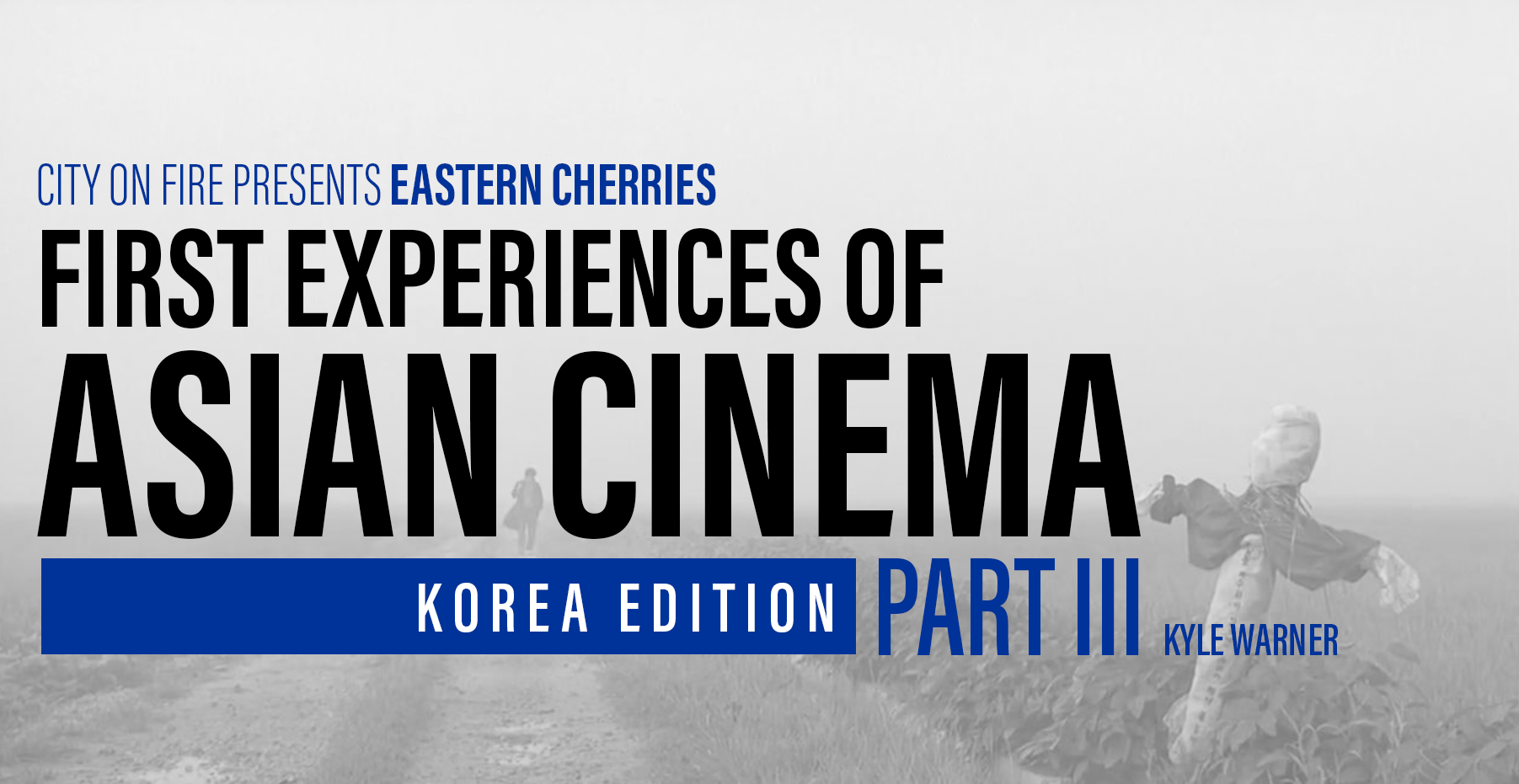 While I can definitively say that Jackie Chan introduced me to Hong Kong/Chinese cinema and that Godzilla opened the door for me to the world of Japanese cinema, it’s a little harder to remember where my appreciation for Korean film began. That’s interesting because I didn’t get into Korean movies until the last decade or so, whereas my interest in HK and Japanese film began much earlier. I think, unlike Japan and Hong Kong, South Korean cinema entered my film viewing habits around the time that Netflix went big. Netflix, for all the crap it gets (some deserved, some not), introduced us to many movies we normally would’ve never had the chance to see thanks to its DVD and streaming services. I am sure that, like many, Oldboy was among the first Korean films that I watched and loved. But I don’t believe that started me down a path of seeking out other Korean cinema. Well, thanks to Netflix’s “You rated this title on this date” feature, I know that I watched a lot of Korean thrillers in the summer of 2007. A few in particular stand out to me now as films that made me go, “hey, what else has this director done?” and in doing so helped me realize that something special was happening in the South Korean film industry.
While I can definitively say that Jackie Chan introduced me to Hong Kong/Chinese cinema and that Godzilla opened the door for me to the world of Japanese cinema, it’s a little harder to remember where my appreciation for Korean film began. That’s interesting because I didn’t get into Korean movies until the last decade or so, whereas my interest in HK and Japanese film began much earlier. I think, unlike Japan and Hong Kong, South Korean cinema entered my film viewing habits around the time that Netflix went big. Netflix, for all the crap it gets (some deserved, some not), introduced us to many movies we normally would’ve never had the chance to see thanks to its DVD and streaming services. I am sure that, like many, Oldboy was among the first Korean films that I watched and loved. But I don’t believe that started me down a path of seeking out other Korean cinema. Well, thanks to Netflix’s “You rated this title on this date” feature, I know that I watched a lot of Korean thrillers in the summer of 2007. A few in particular stand out to me now as films that made me go, “hey, what else has this director done?” and in doing so helped me realize that something special was happening in the South Korean film industry.
Bong Joon-ho’s Memories of Murder is a stone-cold masterpiece. I can distinctly remember streaming that from the Netflix app on my Nintendo Wii (yes, Wii!). I bought the DVD that same week, because I had to make the movie mine. It’s a beautiful looking thriller, surprisingly funny, uncompromising in its depiction of human cruelty, and full of plot twists. By the end of the film, I knew I was a fan of Bong Joon-ho and Song Kang-ho – I would see The Host for the first time that same month in 2007, which only cemented my appreciation for both artists (I think I originally watched Memories of Murder because I was so hyped for The Host, actually). As years went on, both Bong and Song continued to make great films, but I still look back on Memories of Murder as their best work, collaboratively or otherwise. Like a Korean Coen Bros. film in its use of humor and darkness. I still maintain that the final scene is one of the best endings ever.
Though today I tend to believe that Oldboy is Park Chan-wook’s best work, for the longest time I was a big fan of Sympathy for Mr. Vengeance and that started in 2007, too. It’s this strange tale of revenge and desperation where I feel for almost everyone involved, even as they commit some reprehensible acts. One of the things about revenge movies that I struggle to get behind is that the movies often ask us to accept that dozens have to die in order to appease this one person’s quest for vengeance. Harry Brown is a gross movie. Taken is ugly as hell. 2018’s Death Wish? Shiiiiiit. But Park’s Vengeance Trilogy (Sympathy for Mr. Vengeance, Oldboy, Lady Vengeance) depicts revenge as a messy affair. Too many bodies are buried before the end, many of them undeserving of death. And salvation is hard to attain when there are often darker truths lurking beneath the surface. What I like about Park’s revenge movie protagonists is that they often upset and shock us, instead of just being badasses casually expecting our approval. It’s often said that South Korea makes the sort of adult genre entertainment that Hollywood used to make. I don’t believe I’ve ever seen an American film like Sympathy for Mr. Vengeance, though.
I don’t know for certain which film I saw first, but I know director Kim Ki-duk was another filmmaker whose work I fell for early on. 3-Iron is a super stylish film. Samaritan Girl and The Bow are both unsettling yet strangely beautiful. And Spring, Summer, Fall, Winter… and Spring is the work of a master. Kim pisses me off very much with some of the content he’s willing to put on screen. He’s not a director I am willing to watch any day of the week. But my goodness. He’s like an even moodier Takeshi Kitano. If Bong was my introduction to South Korean genre movies and Park was my intro to the dark thrillers, then Kim’s movies were my first taste of Korean arthouse cinema.
As I said, I don’t have as clear of a recollection of any ‘experience’ that opened the door to Korean cinema. But these movies were some of the first that I saw that convinced me I needed to see more. Joon-ho remains my #1 filmmaker from that part of the world and I eagerly await whatever he’s up to next. Just give Bong all the money for whatever big movie sandbox he wants to play in, I’m sure it’ll be great.
Read First Experiences of Asian Cinema: Korea Edition Part I
Read First Experiences of Asian Cinema: Korea Edition Part II
Read First Experiences of Asian Cinema: Korea Edition Part IV

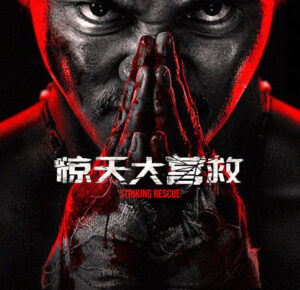
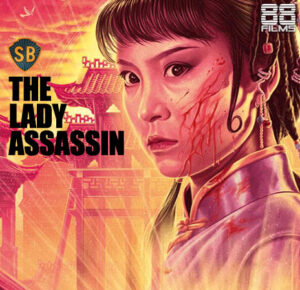
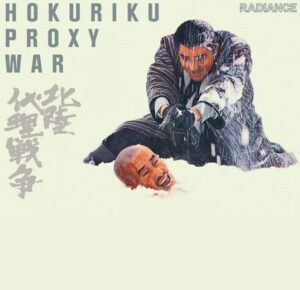


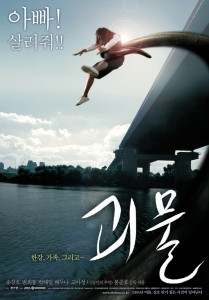
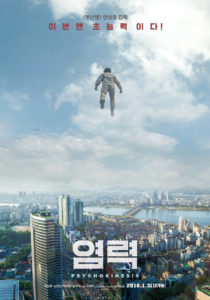
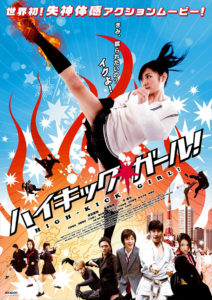

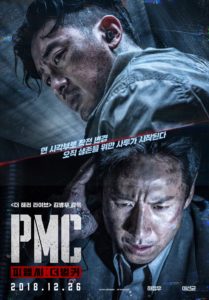
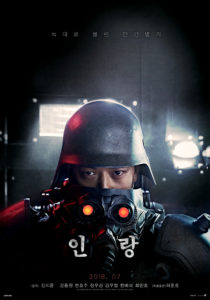

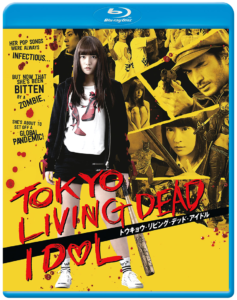
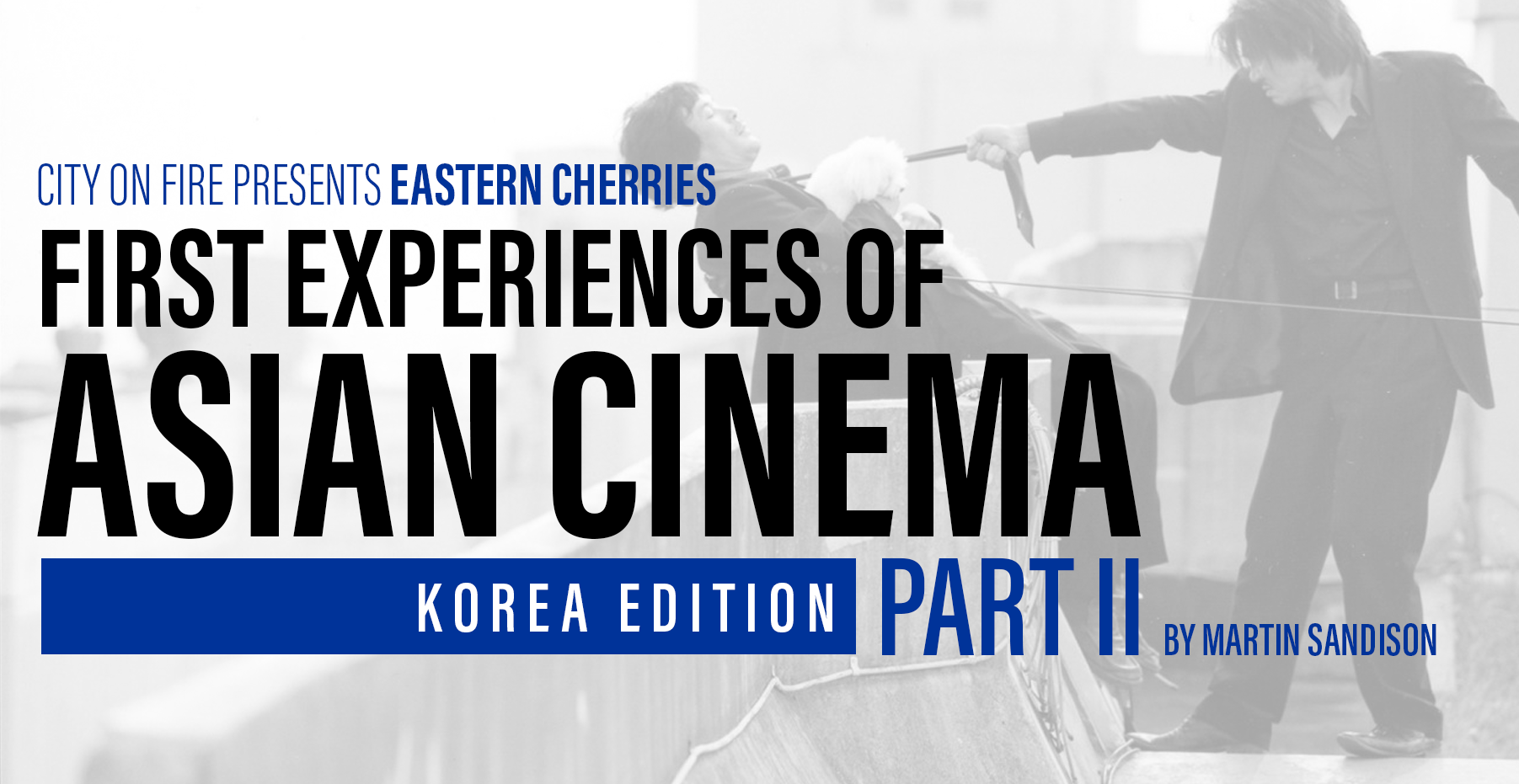 As a young kid of 18, I used to watch a British Television film review programme, then presented by Johnathan Ross. A major advocate of Eastern cinema, Ross is a larger than life character with an abundance of knowledge of especially Asian action movies. At the end of one programme there was a clip of the South Korean film
As a young kid of 18, I used to watch a British Television film review programme, then presented by Johnathan Ross. A major advocate of Eastern cinema, Ross is a larger than life character with an abundance of knowledge of especially Asian action movies. At the end of one programme there was a clip of the South Korean film 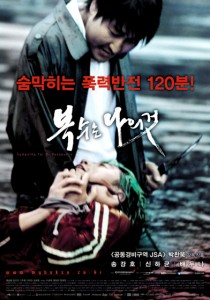

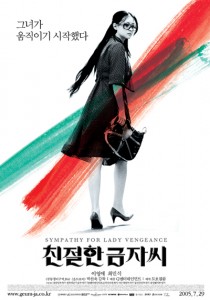
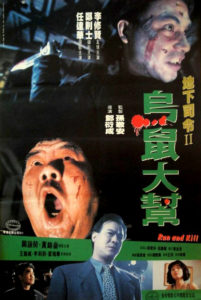
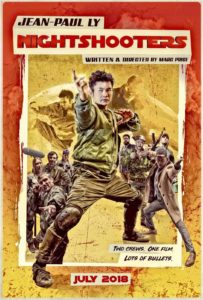


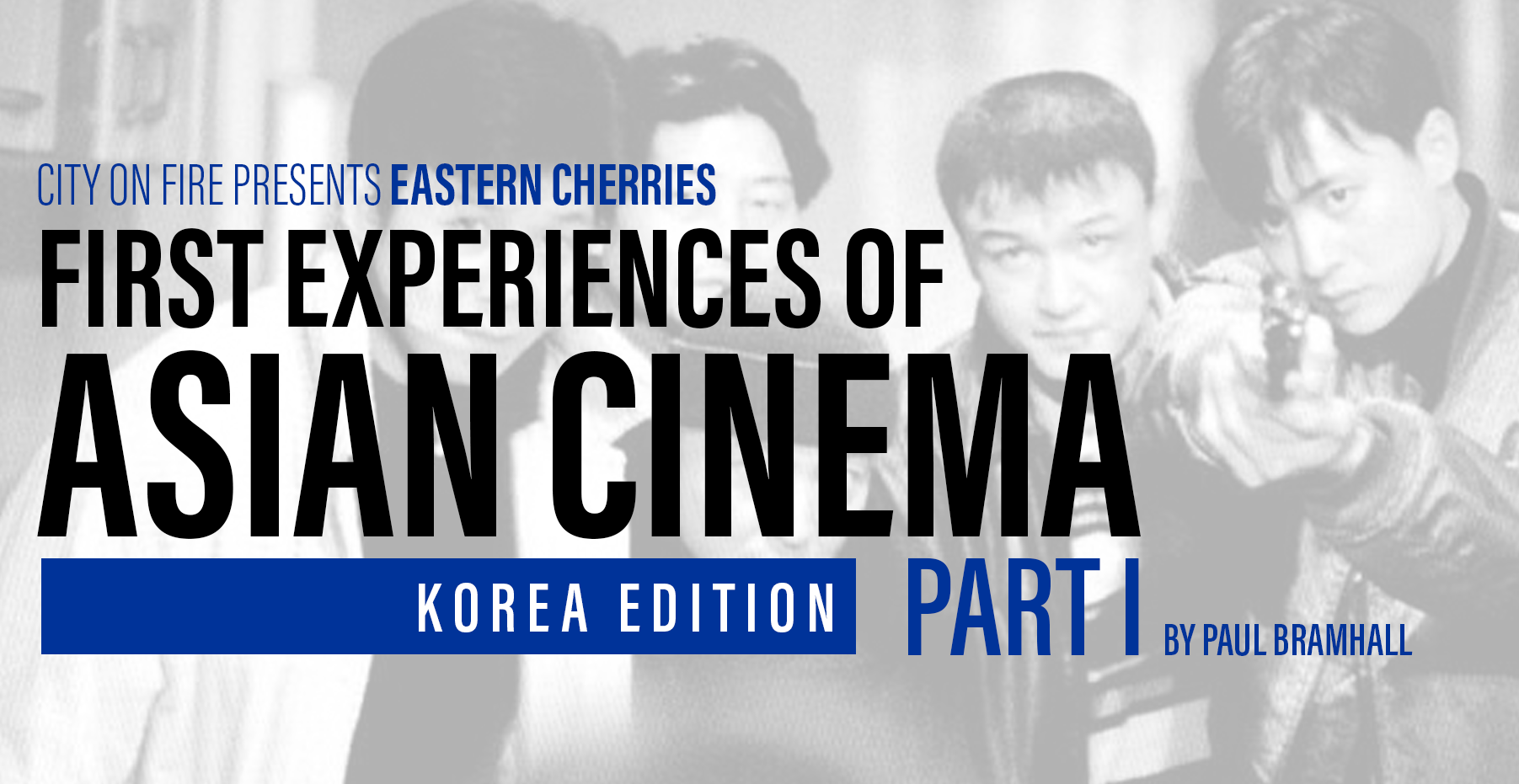 The irony isn’t lost on me that, considering I now devour more Korean cinema than any other countries output, unlike Hong Kong and Japan my first taste of it didn’t have me hook, line, and sinker. If anything, my introduction to the world of Korean cinema left me equal parts perplexed, but with an unshakable feeling that I wanted to see more. Looking back now I think I know why. While I’d gotten into Hong Kong and Japanese cinema when their Golden Era’s had already long past, leaving a seemingly unlimited back catalogue to explore, in the case of Korea my first taste came just as it was on the cusp of entering into its own Golden Era (or in other words – what would popularly become known as ‘The Korean Wave’).
The irony isn’t lost on me that, considering I now devour more Korean cinema than any other countries output, unlike Hong Kong and Japan my first taste of it didn’t have me hook, line, and sinker. If anything, my introduction to the world of Korean cinema left me equal parts perplexed, but with an unshakable feeling that I wanted to see more. Looking back now I think I know why. While I’d gotten into Hong Kong and Japanese cinema when their Golden Era’s had already long past, leaving a seemingly unlimited back catalogue to explore, in the case of Korea my first taste came just as it was on the cusp of entering into its own Golden Era (or in other words – what would popularly become known as ‘The Korean Wave’).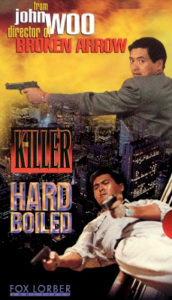

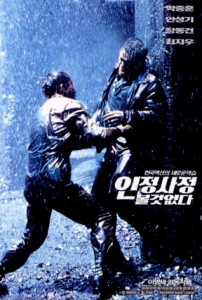
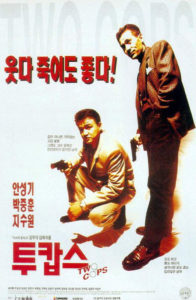
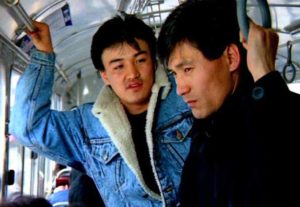
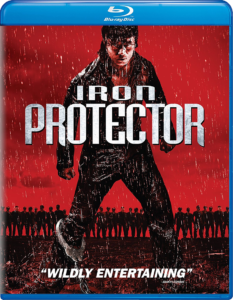




1 Comment